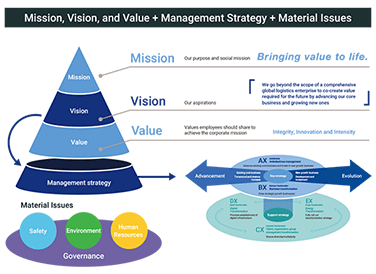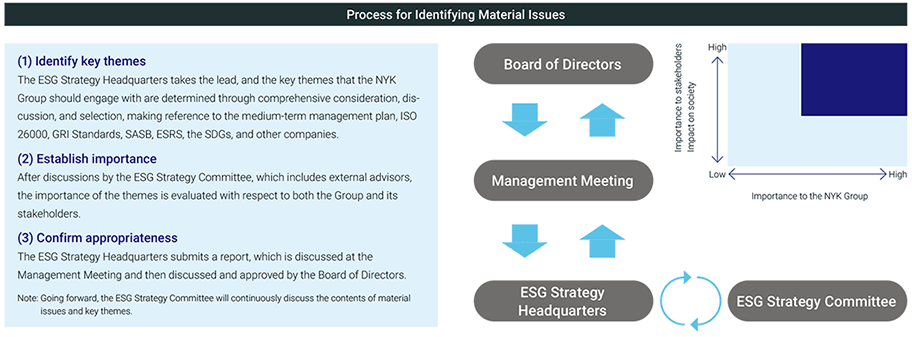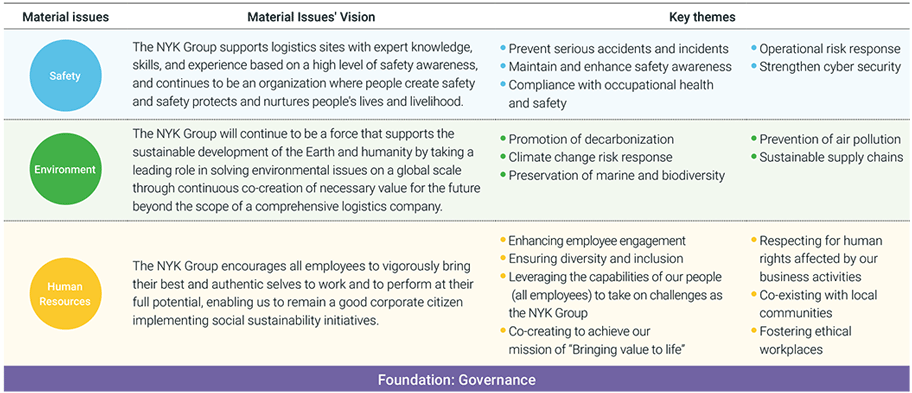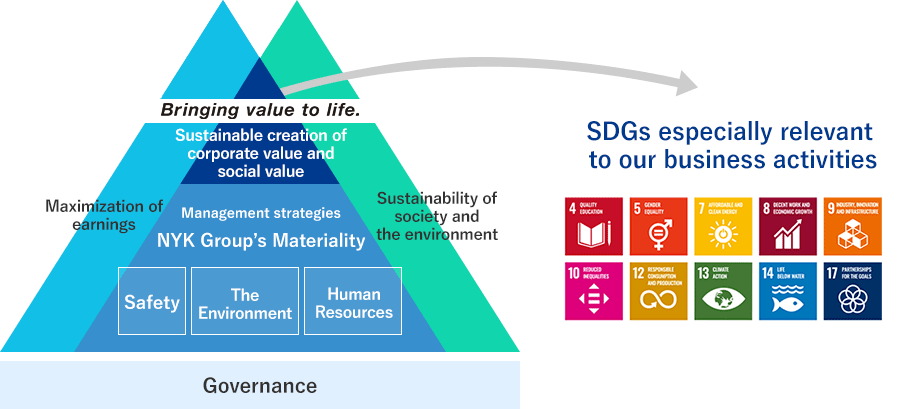Material Issues
The Group's Material Issues of Safety, Environment, Human Resources
Material Issues of the Group

The NYK Group has positioned Safety, Environment, and Human Resources as its three material issues, with governance underlying them. These issues relate directly to our business, so employees are broadly aware of their importance. As we implement ESG management, our material issues form the core of management. The Group has formulated a specific management strategy to realize the new vision of the medium-term management plan announced in March 2023. The figure on the right presents the relationship between our Mission, Vision, and Value, as well as our management strategy, material issues, and governance.
Process for Identifying Material Issues
To realize its mission statement, the NYK Group has identified material issues by ascertaining stakeholders' expectations and placing importance on the changing social impacts of its business activities. In the first fiscal year of the medium-term management plan, we identified more specific key themes associated with our material issues with a view to further advancing them. The ESG Strategy Headquarters took the lead in drafting the contents, which was discussed over multiple sessions with the ESG Strategy Committee. Thereafter, said proposals were submitted to the Board of Directors via the Management Meeting for confirmation and discussion regarding their appropriateness. In the process of careful discussion by many employees and members of lower, middle, and upper management, in addition to directors, the material issues, which have already penetrated the organization, are grasped more deeply by the Group's employees as they take more personal ownership of them. To realize our target state for 2050, we will continue to discuss material issues and identify key themes.

Material Issues' Vision and Key Themes
In the identification process for making the material issues more specific for the new vision announced in the medium-term management plan, the NYK Group has formulated Material Issues' Vision and has set key themes to realize them. Governance is positioned as the foundation, and upon this foundation specific initiatives are determined for realizing the vision.

Non-Financial Targets (KPIs) and Performance
Based on its material issues, the NYK Group has set numerical targets on non-financial KPIs and announced them in the medium-term management plan together with its financial indicators, return on invested capital (ROIC), net income, and ROE. Looking ahead, to monitor the progress of the key themes for realizing Material Issues' Vision, the Group will continue to examine and discuss setting more specific KPIs, such as those to heighten safety awareness (Safety), provide detailed GHG reduction targets (Environment), and utilize engagement surveys (Human Resources).

Material Issues and SDGs
The NYK Group pursues the creation of social value and corporate value by ensuring and enhancing safety, the environment, and human resources, which are material issues, while also contributing to achieving the SDGs (Sustainable Development Goals).

- More Information:

